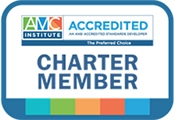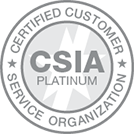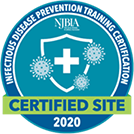Trade associations are organizations of competitors joined together for a common business purpose. As such, there always lurks the potential for members to violate — inadvertently or on purpose — state and federal antitrust laws.
Price-Fixing in a Trade Association
The most common type of member behavior that leads to antitrust violations is price-fixing. Price-fixing includes not just setting prices, but also agreeing on common discounts, credit policies, or terms of sales. Other ways association members can run afoul of the law is by agreeing to limit supply, rigging bids, allocating customers or territories, setting prices for raw materials, or boycotting certain customers or suppliers.
Associations themselves risk breaking antitrust laws should their policies, standards, research, government affairs, or other activities enable price-fixing or favor some competitors and discriminate against others. For example, surveys that allow members to identify the statistics of individuals companies in order to “follow the leader,” or standards that require the use of materials, patents, or technical information not available on equal terms to all competitors in the industry, break antitrust laws.
If belonging to a trade association gives its members a competitive edge (as it should!) then the association must take care that membership is available to all companies on an objective and non-discriminatory basis.
 Understand the Consequences
Understand the Consequences
Penalties for antitrust violations include fines for the association and its members and/or jail time for the individuals who participated in the violation. In egregious cases, the court might impose a consent decree controlling the association’s future operations or even disband the association entirely.
Some antitrust laws, like the federal Sherman Act are criminal conspiracy statutes. That means persons simply attending a meeting where other members of the association engage in an illegal discussion may still be held criminally responsible, even if they said nothing during the discussion.
Have an Antitrust Policy in Place
Given the high stakes involved, every trade association must have and enforce an Antitrust Policy. Such a policy should clearly state that the association intends to comply with all applicable federal and state antitrust laws, and that under no circumstances will it directly or indirectly be involved in conduct that leads to or implies an agreement among its members that would restrain trade and/or otherwise violate antitrust laws. The policy should also state that any conduct by association officers, directors, or employees that is contrary to antitrust laws is contrary to association policy and will be subject to appropriate disciplinary action.
Furthermore, the association’s legal counsel should prepare a list of industry-specific guidelines describing potential antitrust behaviors for those volunteers and staff who may not be aware of the nuances of the law. This list, along with the association’s Antitrust Policy should be distributed to all volunteers and staff. A signed statement to the effect that the individual received it, read it, understands it, and agrees to comply with it should be obtained and kept on file. In addition, it is a wise move to include the association’s Antitrust Policy with every meeting agenda, begin the meeting with a review of the policy, and reflect the fact that the policy was reviewed in the meeting minutes.
Unscheduled, informal, secret, or “rump” meetings held in conjunction with regular association meetings should be discouraged. Ideally, association staff and/or legal counsel should be present — and minutes kept — at every association meeting. If a subject of doubtful legality is brought up during a meeting, the person leading the discussion should be warned immediately that the subject is not a proper one and discussion halted. If the discussion continues despite protest, it is advisable that attendees leave the meeting immediately!
Paul Mendez serves as the executive director of the Council for Chemical Research, a position he has held since 2009. He has worked in various trade and professional associations since 1982, with positions in executive management, marketing, publications, communications, and member benefits. A graduate of the College of William and Mary, Paul works out of Association Headquarters’ Washington DC Office, and is also one of Association Headquarters’ ASAE Certificate Program facilitators.




